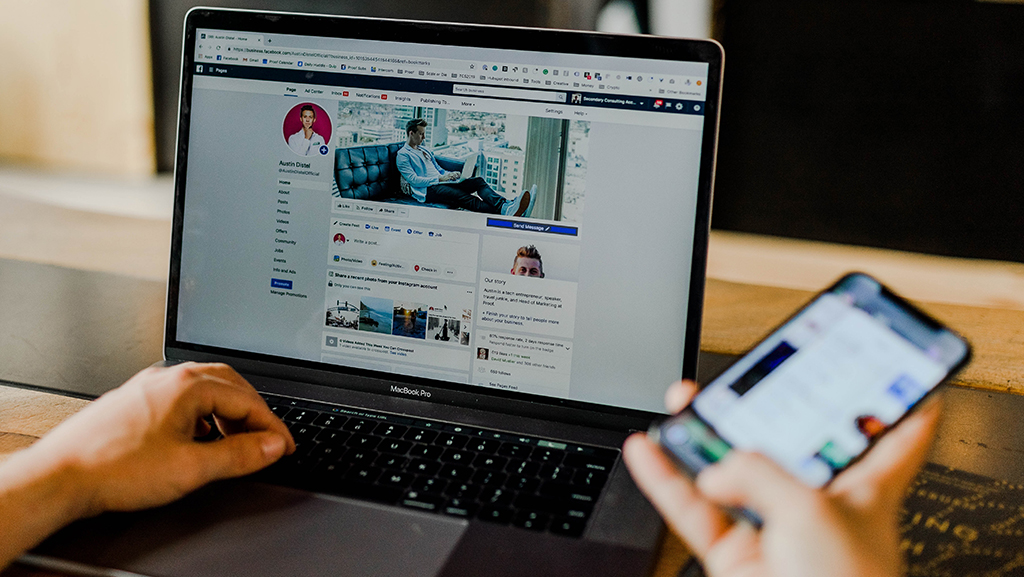Social media: how do they keep us hooked?
Notifications, design and a persuasive experience encourage users to share more information and spend more time on applications
We live in an era of information overload in which the internet is playing an increasingly active part in our daily lives; a phenomena which has only intensified since the onset of the pandemic and the subsequent transition to teleworking, distance learning and online shopping. According to an IAB study, 62% of the Spanish population now use social media and the average daily usage time rose to 1 hour and 20 minutes in 2020, an increase of 25 minutes. We Are Social and Hootsuite suggest that global usage figures may, however, be even higher, with individuals spending an average of 2 hours and 25 minutes on these platforms each day.
As Universitat Oberta de Catalunya (UOC) Faculty of Psychology and Education Sciences professor and eHealth Center researcher Manuel Armayones Ruiz sees it, "The more you use social media, the harder you will find it to wean yourself off it because of all the effort, time and information you have invested there. We pay the price of using these applications in terms of loss of privacy; but we are beginning to open our eyes to that reality."
Netflix documentary The Social Dilemma has sounded the alarm for some in relation to our use of social media and the resulting constant monitoring, loss of privacy, use of our information and potential addiction to these types of tools, warning us of the need to set some limits. According to Armayones, "A key piece of advice would be to refrain from opening accounts on all the social media networks out there. It is becoming increasingly clear that the rational use of these platforms includes only selecting those that meet our needs. The important thing is to be fully aware of the fact that we will be sharing information that is going to be used for commercial purposes." When we access these platforms, we hand over control of our data and, the more information we provide in the form of retweets, comments or likes, the more the app developers are able to learn about our tastes and interests.
Persuasive technology: strategies to keep you glued to your screens
For the UOC expert, social media is a clear example of how persuasive technology can be used to get people to engage with these tools for the longest amount of time possible: "Social media networks, as the commercial products that they are, have no other purpose that to generate profits for their shareholders. As such, the longer we are glued to them, the more accurate the marketing suggestions we receive will be, which is achieved by analysing our historical online behaviour."
According to the UOC researcher, these platforms use an extensive range of design and personalization techniques to engage users in line with their specific ultimate goal. Some seek to facilitate and secure a commercial transaction, where, as in the case of Amazon, we move from one screen to another but are always made to return to the purchase screen to facilitate the transaction rather than logging off. As Armayones pointed out, "We need to remember that nothing happens just by chance. The fact that we are being shown certain information is based on the results of an algorithm that is trying to influence our behaviour so that we buy products, change our opinions, follow a certain page or person, etc."
The best defence: education
This type of technology displays information that is emotionally relevant to the user. The UOC professor, however, is an advocate of education as the best source of defence; encouraging us to apply critical sense and reflect on everything we see and hear on social media in exactly the same way that we ought to be doing with respect to everything we see and hear in modern society. "The best way to avoid technological manipulation is by being aware of its existence and being on the alert when we make decisions regarding the content we are being shown on social media. We always need to be looking at things with a critical eye and asking ourselves whether what we are seeing is reality or what we believe to be reality." In the end, he added, "the adoption of certain technologies needs to be the decision of the individual, corresponding to their attitude and the specific appeal for them." One of the problems generated during the COVID-19 pandemic lockdown is the phenomena of technostress. The rapid move to teleworking and people having more free time and being surrounded by screens has provoked stress and anxiety in people unable to respond to the technological requirements of the platforms we customarily use, such as social media.
Manuel Armayones is, however, against the demonization of social media as, "it does promote some positive behavioural responses, such as making us aware of global problems – climate change, for example – and encouraging us to participate in activities to make a difference to our environment." Social media forms part of our present and, more than likely, future panorama; the key lies in applying critical sense when using it and for the governments of each country to introduce regulations to protect the privacy of their citizens.
Experts UOC
Press contact
-
Editorial department
